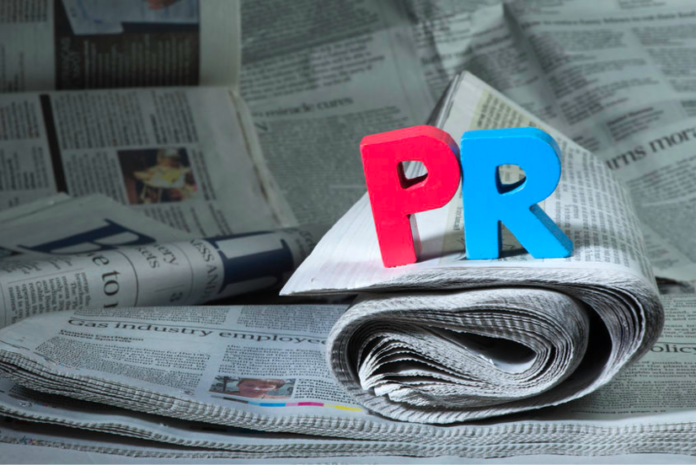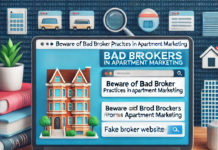This article was written by:
Noelle Fauver, contributing editor for 365 Business.
We all know there’s nothing more damaging to a brand or company than a PR disaster. While many PR mishaps can vary in damage done, being prepared to handle the media can help to prevent or mitigate potentially detrimental exposure. If your company has already committed a PR faux pau, the good news is that it’s likely to be relatively short-lived. Despite this, some mistakes can lead to long-term damage and possibly even bankruptcy.
When you’re a small business without a PR representative or firm hired full-time, having a basic PR toolkit can prevent your brand from potentially harmful media exposure. Thwart future mishaps by memorizing these tips and adopting them as your PR bible.
Tip #1: “Off the Record” Doesn’t Exist
There’s no such thing as “off the record”. If you don’t want your audience knowing something about your business, don’t let it leave your lips. Many states don’t have legislation requiring that both parties are aware they are being recorded and many camera crews will even continue filming once the interview has ended. Reporters are looking for a story and that story is often going to be rooted in controversy. If you’re off-record comment provides them with a story, they’re going to use it. Being “off record” goes beyond speaking with a reporter. If you’re in a studio or near a reporter or cameraman or anywhere besides the absolute privacy of your home, be aware that you’re being watched. This clip of Sainsbury’s CEO caught singing “We’re in the Money” to himself before the Asda merger interview proves just that. Even in the event where you feel you can trust the reporter; best practice is to not say or do anything that you wouldn’t want to be publicly exposed.
Pro Tip via Leo Friedman, CEO and Founder of iPromo:
“Treading through a tough position can always be resolved when deliberating on the facts of an event. Display facts about the truth to dispel any wrong speculation. There isn’t a need to speak in-depth about hypotheticals or tangents. Stay focused on the facts, as opposed to stirring the pot and denying or accepting any controversy. Stay away from feeding into bait that the media may produce. If you’re resilient and consistent with your fact-based response, there isn’t much room for disbelief.”
Tip #2: Always Stay Away from Religion, Politics, and Gender
It’s important to remember that without you, the media doesn’t have a story. You control the narrative. Reporters and media personnel will try to direct you away from your message. Stay in your comfort zone and always know that you don’t have to say anything you don’t want to. Chik-fil-a learned this lesson firsthand when CEO Dan Cathy discussed his conservative views on the institution of marriage on The Ken Coleman show. Chik-fil-A underwent a media firestorm following these comments. Business partners severed ties with the fast-food chain and activists worked to boycott restaurants. Even if you’re not dealing directly with the media, it’s important to keep your political and social opinions private. Don’t share them on social media channels or discuss them at public events. Regardless of who with or where you share your personal views, they are going to be divisive. Additionally, your political and social opinions shouldn’t have anything to do with your service or product. Ultimately, companies don’t always know exactly who their audience is. Play it safe, do yourself and your business a favor, and keep these opinions private.
Tip #3: Know Your Message & Stay on Topic

Know what points you want to make and familiarize yourself with the message you want to send. Remember that your audience wants you to succeed. Have you ever watched an interview gone wrong? It’s painful and unpleasant for the viewer. When preparing your message consider who your audience is. There are three audiences you’ll want to cater your message for.
- the people on the inside – your employees are just as important as your consumers, consider how your message will affect them.
- the people on the outside – they way that current and future consumers view your company influences your brand’s perception, consider how they will interpret your message.
- the future – what does this message say about the future of your brand, your employees and your customers.
Once you’ve identified your audience, it will be easier to construct what message you want to send. Once you’ve identified your message, pick three topics that you’ll need to focus on to convey this message. Stick to only making three points, your audience won’t remember anything past that. In addition to your audience, there are a few other elements to consider. What does your company do? Why do you do it? What do you have to gain from your message? And what comes next? Always be comfortable with your client/company message. If you’re not, don’t talk to the media.
Pro Tip via Matt Edstrom, CMO of GoodLife Home Loans:
“Know how to respond to questions you don’t want to or don’t know how to answer. If you don’t know the answer to a question, be transparent. Tell the reporter that you’d need to have a conversation with the person best equipped to answer that question to provide an adequate answer or that you need additional time to answer the question. If you’re the person who should have the answer to the question, don’t admit that you don’t. Another option is to answer only part of the question, the part that you either know the answer to or the part that won’t be damaging to your brand. Another option is to safely and intelligently redirect the question by clarifying with, ‘I think what you’re asking me is…’. Know that there is a good chance that you’ll be presented with an uncomfortable question and keep cool when it happens.”
Tip #4 Know When to Use & When Not to Use Your Company/Product Name
Whenever you’re discussing your company or company’s product make sure to always use the company or product name. This will allow for any statement that you make to be taken out of context and still make sense. This is important for re-creating content from your media exposure. Additionally, the more often you use your company or product name, the more exposure it receives. If someone tunes into your interview halfway through and you’ve only used your company name once, how can the viewer know what you’re talking about? Additionally, if you’d like to feature clips or audio from the segment, it will be a much better branding opportunity if your company or product name are being used.
On the other hand, if you’re addressing negative issues, do not, under any circumstance, use your company or product name. If you happen to be addressed with a negative circumstance, whether it be a customer review or client complaint, a mistake made by a current or former employee or even an unfounded accusation – do your best to redirect the conversation and don’t use your company name. As soon as you use your company name, you associate your brand with the negative circumstance. In addition to not referencing your brand in relation to less than ideal situations, don’t use or repeat negative language when discussing said circumstances.
Tip #5 Practice & Be Prepared

Chances are if you’re a small business, you may only get one shot at getting media exposure. That media exposure could hugely influence the success or failure of your brand. This is one of many reasons why it’s so important to practice and be prepared. No matter how much you prepare, there’s a chance you’ll be thrown a curveball, so prepare for that as well. The more comfortable and prepared you feel, the better you’ll be able to handle unexpected circumstances. Make your statement, back it up with examples, conclude your thoughts, and stop talking. Don’t feel the need to continue talking. Find someone you can run through mock interviews with and remember these tips.
Pro Tip via Jason Yau, VP of E-Commerce & General Manager of CanvasPeople:
“Be prepared to talk to the media. There is nothing worse than being caught off guard by a question. Prep, prep, and prep again. If you think you are ready to address the media, you aren’t. Outline every angle that may be talked about and become an expert. Doing an actual practice run where someone asks you questions is also a huge help as well. This tactic will help you feel more comfortable and confident in your answers. Even if you don’t fully know what you are talking about, speaking with confidence will go a long way. Take pride in the preparation, and the real deal should be a breeze.”
Noelle Fauver is a contributing editor for 365 Business. She has a B.A. in Communication Studies from California State University, Northridge. She has experience in marketing, finance, and small business management.





